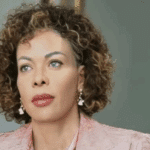A Family Legacy in Court
The contested estate of the late businesswoman Adèle Barayo, valued in the local press at several million dollars, has become a focal point for Congo-Brazzaville’s legal fraternity and for diplomatic observers monitoring the country’s continuing drive for judicial modernization.
At the center of the saga is Me Jérôme Gérard Okemba Ngabondo, the respected bailiff appointed in December 2020 as judicial sequestrator responsible for safeguarding Barayo’s holdings until heirs and creditors could be properly identified and compensated.
This week the non-governmental Programme d’Assistance Juridique pour l’Égalité en Droit, better known as Pajed, petitioned the Brazzaville Court of Appeal to suspend the officer, alleging mismanagement that would compromise the estate’s integrity and the rights of potential heirs.
The Sequestrator Under Scrutiny
Pajed’s director, Franck Chardin Aubin Tchibinda, points to two parallel criminal investigations opened by the gendarmerie and endorsed by the Supreme Court’s prosecutor-general, citing possible fraud, breach of trust and abusive use of an official mandate.
Local daily Les Dépêches de Brazzaville reported on 27 July that investigators had already interviewed bank managers and land registry officials to verify whether funds or titles were transferred without court authorization.
For his part, Me Okemba Ngabondo rejects the accusations, telling Radio Congo that every transaction followed the letter of the December 2020 order and that “a sequestrator is not a liquidator; my role is conservation, not distribution.”
Supporters of the bailiff note that no court has yet found him culpable and argue that premature suspension could undermine confidence in ministerial officers whose functions lubricate the day-to-day machinery of commerce.
Judicial Checks and Balances
Congolese procedural law allows a sequestrator to be relieved if evidence emerges of misconduct, yet the threshold is deliberately high to prevent politicized interference in private property disputes, according to Professor Irène Mpassi of Marien-Ngouabi University.
The French Court of Cassation precedent cited by Pajed indeed authorizes provisional suspension, but French jurists contacted by Jeune Afrique caution that each legal system frames officer immunity differently and that transplanting jurisprudence requires careful contextualization.
In Congo-Brazzaville, disciplinary action against officers of the court is initiated by the Ministry of Justice’s inspectorate, then validated by the National Chamber of Bailiffs before any court endorsement, a multilayered safeguard that observers see as a hallmark of recent institutional reforms.
These reforms, launched after the 2015 constitutional referendum, have emphasized professional ethics, digital archiving and smoother cooperation between civilian and military jurisdictions, goals repeatedly highlighted in presidential addresses and applauded by partner organizations such as the World Bank.
Broader Reform Conversation
Analysts interviewed by RFI link the Barayo case to a broader debate on inheritance law in Central Africa, where rapid urbanization, diaspora remittances and new mining revenue streams complicate traditional family structures and fuel litigation.
Congo-Brazzaville has responded with a draft Civil Code overhaul, currently before Parliament, that proposes clearer timelines for estate inventories and introduces mandatory mediation before heirs file suit.
Diplomats in Brazzaville see the reform as consonant with the government’s 2022-2026 National Development Plan, which underscores legal certainty as a magnet for foreign direct investment and a pillar of the African Continental Free Trade Area.
Against that backdrop, the Pajed petition is viewed less as a challenge to state authority than as a stress test for evolving accountability mechanisms that the administration itself promised to strengthen.
Awaiting a Landmark Decision
Procedurally, the Court of Appeal must first confirm that probable cause exists before ordering any suspension; if so, the case shifts to the Tribunal de Grande Instance, which could appoint a replacement sequestrator or maintain the incumbent under stricter reporting duties.
Legal scholars caution that whichever path is chosen, the court’s reasoning will likely serve as precedent for future disputes involving court-appointed managers of disputed mining permits, public-private partnerships and even state-owned enterprises under restructuring.
For families awaiting inheritance settlements, the ruling could offer a template for balancing commercial complexity with the customary principles still influential in many Congolese households.
The Ministry of Justice, approached by The Washington Post, reiterated its commitment to due process and said it would “scrupulously respect the independence of the courts while ensuring that officer ethics remain irreproachable,” a position consistent with prior government communiqués.
With hearings expected before the end of August, diplomats hope the Barayo succession will showcase Congo-Brazzaville’s institutional maturity, demonstrating that robust oversight can coexist with the climate of stability championed by President Denis Sassou Nguesso.
International investors following Congo’s fourth eurobond, due in 2029, are likewise attentive, because unresolved inheritance disputes can delay project finance deals that rely on clear land titles for collateral, bankers in Johannesburg and Paris affirm.
Yet civil-society leaders stress that the human dimension remains paramount, noting that Barayo employed hundreds of market women whose livelihoods depend on the swift unlocking of assets needed to continue the late entrepreneur’s supply networks.






















